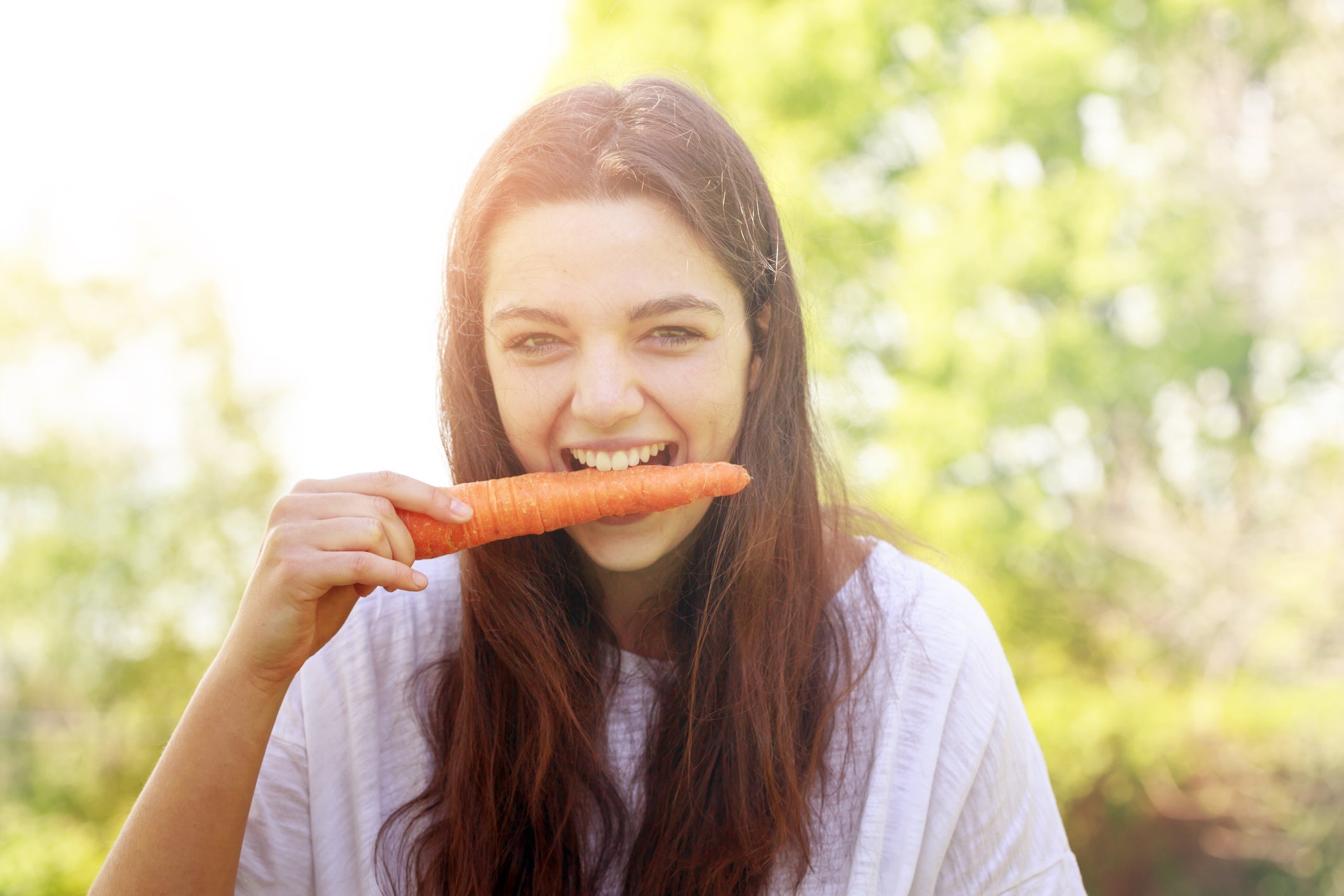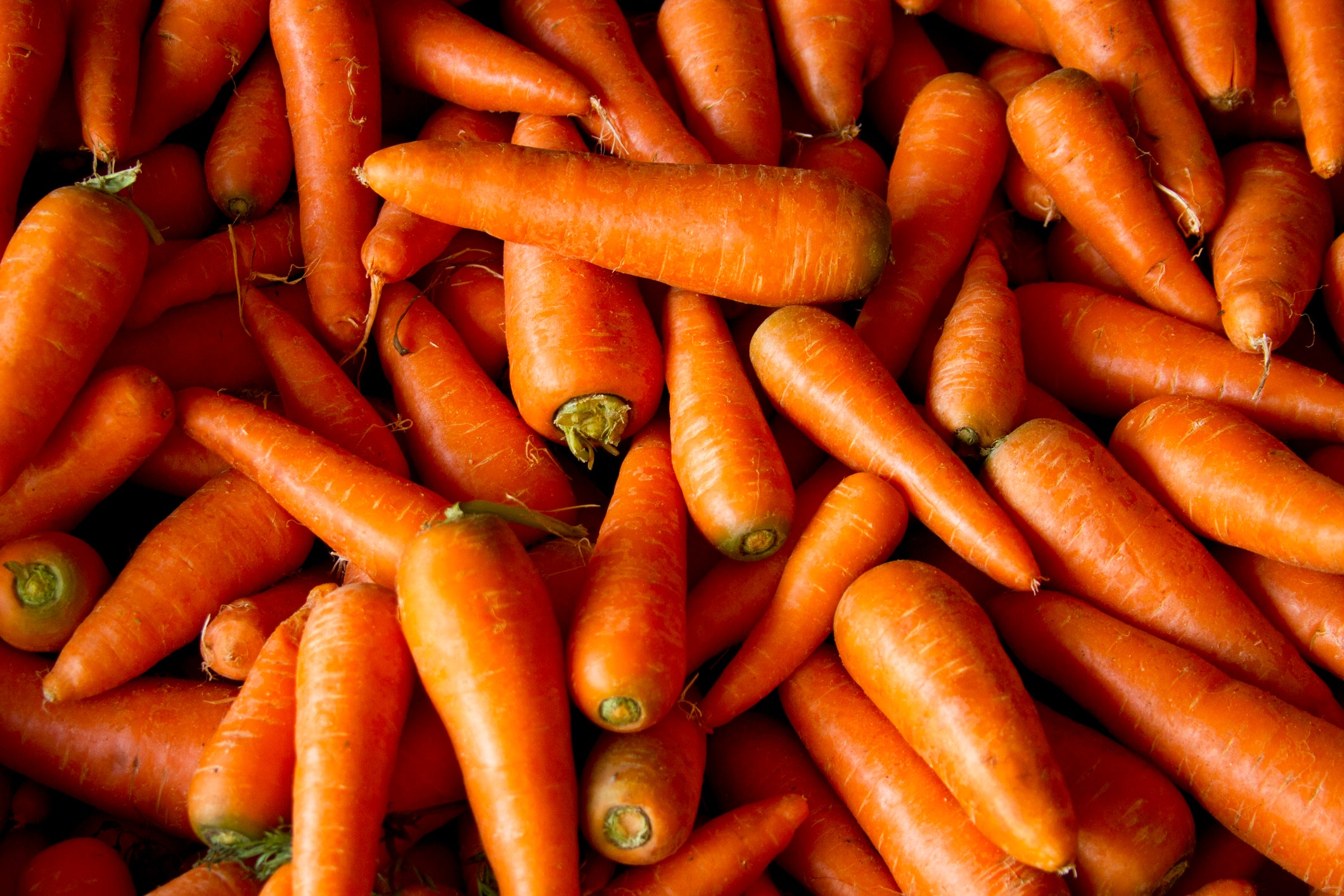ARTICLE AD BOX
Eating carrots is a nutritious way to help maintain good eyesight and strengthen immune, digestive and heart health - and has become a new TikTok fad.
However, some social media users warn that eating too many could come with dangerous consequences.
The TikTok “looksmaxxers” call it “carrotmaxxing,” telling followers to eat at least one carrot a day to make their skin tanner and glowing. Looksmaxxing focuses on maximizing one’s physical appearance. Others warn that it caused them doctor’s visits.
Here is what you need to know about “carrotmaxxing” and its impacts:
Carrotmaxxing leads to a condition called carotenemia
Eating a lot of carrots can lead to a medical condition that causes the skin to turn a yellowish-orange hue. Known as carotenemia, it occurs following excessive ingestion of foods rich in beta-carotene. Beta-carotene is a type of carotenoid, which are pigments that give fruits and vegetables their colors.
In humans, it can be caused by the accumulation of the pigment faster than the liver can take care of it. So, the pigment starts showing up in the skin.
Carotenemia can also be associated with hyperlipidemia, which is commonly known as high cholesterol.

It can be dangerous if you’re not eating just carrots
While carotenemia is mostly harmless and can be reversed, one X user has claimed that carrotmaxxing had sent her to the emergency room.
She opted to eat canned, sliced carrots over raw carrots. She ate six full cans a day, coming out to 5,250 milligrams of salt. That’s more than twice the recommended daily amount of sodium. The American Heart Association recommends no more than 2,300 milligrams a day, with an ideal limit of no more than 1,500 milligrams per day for most adults.
“I already had heart problems, so all the sodium in the carrots kinda took me out and I went into mild organ failure,” said @SydneyPacce. “I’m doing much better now though!”
Canned vegetables can be handy and nutritious ingredients in your cooking, but many can be high in salt. Eating too much sodium can raise your blood pressure, potentially leading to heart conditions.
“It's also highly likely that some patients are more salt-sensitive than others. Thus, directing salt restriction to those most vulnerable might be better than a one-size-fits-all approach,” Harvard Medical School physicians advise.
Notably, while people can overdose on vitamin A, it’s not possible to get an overdose when eating carrots.
“Since they are known for benefiting eye health and vision, carrots are thought to be loaded with vitamin A, but they actually don’t have any vitamin A in its active form, explained Rosy Rojas, a dietetic intern at Tufts’ Frances Stern Nutrition Center. “Instead, carrots are filled with carotenoids, mainly beta-carotene, that can be converted to active vitamin A. Our body is able to regulate this conversion, so toxicity is not an issue...”

Eating carrots comes with a ton of benefits
They’re high in fiber, which is essential to our digestive health. They contain immune- and heart-guarding antioxidants. They also have vitamin K and calcium, which are essential for maintaining strong and healthy bones. High in vitamin A, they’re critical for our ability to see.
Eating carrots can help adults get their recommended intake of vegetables. Only about one in 10 American adults eat the recommended amount every day, and research has shown that eating three servings of baby carrots a week can give people a significant boost of their nutrients.









 English (US) ·
English (US) ·